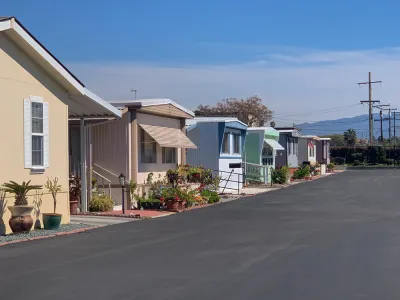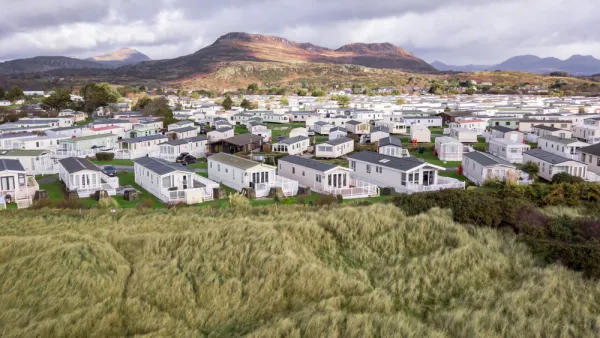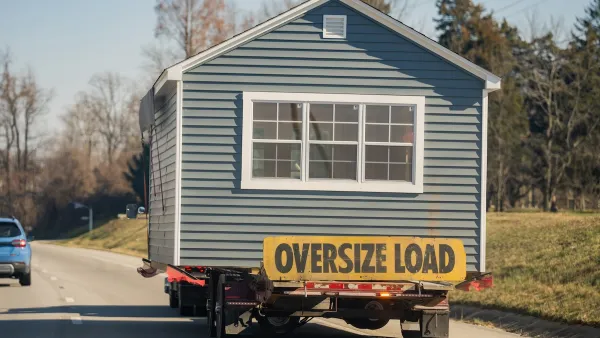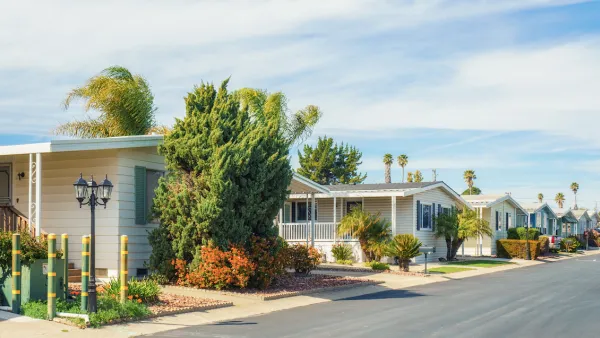Governments at all levels are finally waking up to the benefits of protecting and encouraging the production of factory-built homes, which offer an affordable, efficient form of housing that many Americans depend on.

As the country faces a shortage of roughly 3.8 million housing units, Erika Bolstad describes how factory-built homes could provide an affordable option for boosting construction and creating more affordable housing. “Because manufactured homes are built on an assembly line, they're less expensive and faster to construct. They're seen as essential for providing new housing, especially for lower-income buyers who may have been priced out of site-built homes or expensive rental markets,” Bolstad writes in Governing, noting that “The average factory-built home costs $106,000 to build, compared with $351,000 for site-built homes.”
Contrary to popular belief, these homes are held to rigid construction and safety standards, while the controlled environment of a factory means that components are built with precision and quality, according to Lesli Gooch, chief executive officer of the Manufactured Housing Institute.
Meanwhile, “The Biden administration's Housing Supply Action Plan released in May specifically supports the production of new manufactured housing and new ways of financing such homes.” Since then, some states and cities have relaxed zoning rules to permit manufactured housing in more areas. As Planetizen has noted in prior articles, manufactured home residents face a rising threat of displacement as real estate investors buy mobile home parks and raise lot rents. To combat this, some residents are banding together to purchase land, but still face obstacles in acquiring financing.
Bolstad also draws attention to efforts in some cities to preserve manufactured home communities and prevent the displacement of residents in favor of more profitable uses. “In Austin, Texas, a city facing rapid gentrification in some neighborhoods, the city rezoned mobile home parks in a way that prohibits them from being torn down and converted to other uses.” In Colorado, tenants of manufactured homes have the first right to the option to buy land if it’s put up for sale. The source article describes several other initiatives aimed at protecting current residents and preserving manufactured home parks as a key source of affordable housing.
FULL STORY: Factory-Built Homes Could Help Solve Housing Crisis

National Parks Layoffs Will Cause Communities to Lose Billions
Thousands of essential park workers were laid off this week, just before the busy spring break season.

Retro-silient?: America’s First “Eco-burb,” The Woodlands Turns 50
A master-planned community north of Houston offers lessons on green infrastructure and resilient design, but falls short of its founder’s lofty affordability and walkability goals.

Delivering for America Plan Will Downgrade Mail Service in at Least 49.5 Percent of Zip Codes
Republican and Democrat lawmakers criticize the plan for its disproportionate negative impact on rural communities.

Test News Post 1
This is a summary

Test News Headline 46
Test for the image on the front page.

Balancing Bombs and Butterflies: How the National Guard Protects a Rare Species
The National Guard at Fort Indiantown Gap uses GIS technology and land management strategies to balance military training with conservation efforts, ensuring the survival of the rare eastern regal fritillary butterfly.
Urban Design for Planners 1: Software Tools
This six-course series explores essential urban design concepts using open source software and equips planners with the tools they need to participate fully in the urban design process.
Planning for Universal Design
Learn the tools for implementing Universal Design in planning regulations.
EMC Planning Group, Inc.
Planetizen
Planetizen
Mpact (formerly Rail~Volution)
Great Falls Development Authority, Inc.
HUDs Office of Policy Development and Research
NYU Wagner Graduate School of Public Service





























